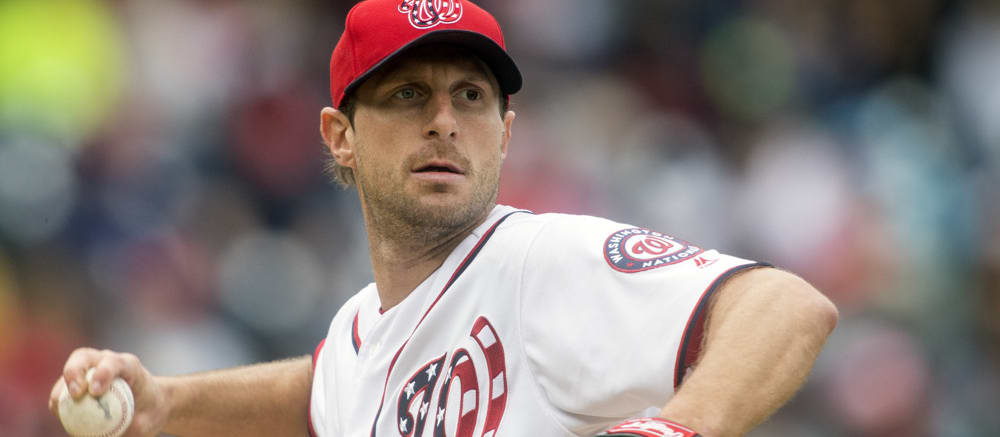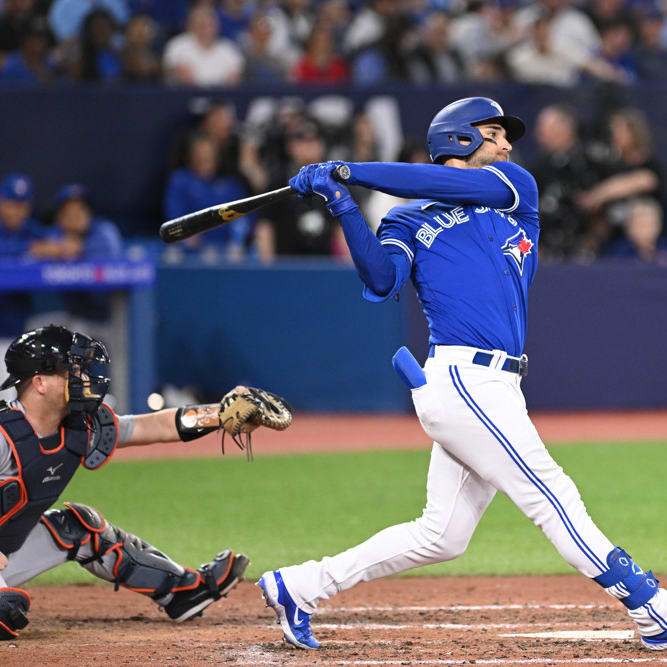This article is part of our The Z Files series.
With League of Alternative Baseball Reality (LABR) weekend upon us, it's time to shift focus from snake drafts to auctions. After participating in the Mixed Draft since its inception in 2012, I've been invited back to Phoenix to take the late Lawr Michaels' spot in the American League auction. Needless to say, I was honored to accept.
Many of you are probably thinking, "Finally! Auction strategy doesn't get nearly enough attention." Yeah, you're right. The truth is there's no replacement for experience when it comes to mastering the format. Still, that doesn't mean more bandwidth can't be dedicated to discussing auctions.
Today, I'm going riff on some auction dynamics while providing some pointers for those following along with the LABR auctions, as there will be a public link to the draft board along with live coverage on SiriusXM Fantasy radio with the festivities kicking off at 7:00 PM ET/4:00 PM PT on Saturday (AL) and Sunday (NL). You may even recognize the Sunday auctioneer.
Nomination strategy
There's a whole bunch of ideas recommending what to do. The thing is, they all work and, they all don't. Each auction is unique. Players are nominated in a different order. Rosters are built differently. Nominating a player you want early to get him cheap may work in one auction but backfire in another. Waiting to nominate someone you want during the bargain phase may work, or the player may still draw full price.
Instead, here's something not to do. Don't nominate a player "to get money off the table." News flash: it's already off the table. Throwing Mike Trout out as the first bid because you prefer to let everyone spend early doesn't draw money off the table. Trout's money is off the table right now. Someone, likely several someones, intend to pay what it takes for Trout. Seriously, is Trout not going to be nominated and swim to the end game and sell for pennies on the dollar? Let someone else pat themselves on the back for drawing out Trout's money. You need to accomplish more with every nomination.
Before each turn, think about what piece of information you'd like to know and determine who is most likely to draw that out. Trout doesn't set any market, but nominating Max Scherzer does. Maybe you're thinking about an ace pitcher but aren't sure if you want to pay the cost. Scherzer should cap the price range. Once you secure your ace and don't plan on buying another, use your nominations to toss every remaining elite arm so no one slips through the cracks. Similarly, if you buy Paul Goldschmidt, follow it up by nominating Freddie Freeman, then Anthony Rizzo etc.
If you notice someone else nominating similar players, let them do your dirty work and switch to a different piece of info. Maybe you have no intention of investing in a top closer, so you decide to toss Edwin Diaz. Before your next turn, someone else tabled Blake Treinen for $1 then didn't bid again. There's a strong chance they're also eschewing high-priced saves. Let them nominate the closers and find something else to learn.
Bidding strategy
I admit, I'm terrible. Going public with the fact I usually only bid on players I want isn't telling my competitors something they don't already know or can figure out. I'm the same way in poker, only betting with a good hand. I'm a very easy read.
In poker, this is a huge issue and one reason I don't play any longer. In an auction, I'm disciplined enough to drop a player in my opponent's lap if they're bidding him up because I'm in on the bidding. Without a doubt, there are occasions I'm bid up because of my tell, so to speak. However, at least in the auctions I play in, almost all of the time others are bidding because they want the player at that price, not because they're afraid I'll buy a bargain.
Ideally, the best approach is varying bidding patterns. Bid on almost everyone. Sometimes, wait until "going twice." Other times top the previous bid before the person finishes. Do me a favor and no one tell Chris Liss I'm publicly complimenting him, but there's no one better at this than Liss.
The one bidding trick I'll often deploy is jump-bidding to the nines. Unfortunately, it doesn't work in a disciplined room. The idea combines two psychological factors: jumping a bid several units can chase off competitors unsure of how high they want to go on the player. When the bidding increases one buck at a time, they have time to think, if not get emotionally involved in the bidding. "To the nines" means bidding 9, 19, 29 etc. There's a psychological barrier going to the round number. For some reason, the difference between 19 and 20 seems greater than 18 to 19.
The counter-argument is I'll never know if a $17 bid would have won a player I jumped from $16 to $19. While this is true, my gut tells me it works often. That said, I'll readily admit this could very well be one of those things that both works and doesn't work.
Price enforcing
Price enforcing is the tactic of bidding up a player so someone else doesn't buy them at a discount. The problem is, most price enforcing is simply bidding a player up to a point you're OK with putting them on your roster. I promise, if you listen to the coverage of LABR, someone will say they were caught price enforcing, but there were fine with it. Not for nothing, but that's not price enforcing. True price enforcing risks being saddled with a player you don't want, someone doing your team construction more harm than good.
Tips for following along with the LABR auctions
I'll go more in depth on auction preparation next week. Let's spend the rest of this discussing some exercises you can do while following along with the LABR auctions.
Earlier, I made a poker analogy. Here's another. One reason poker has a cult following on TV, even if the tournament winner is already known, is viewers love to play along, trying to guess the hole cards based on the community cards and betting patterns. This is what one needs to do at the poker table. Similarly, it's fun to try to figure out how much players will sell for based on previous prices and roster construction. This speaks towards experience being the best teacher. It's not something that can be handled in a column. You must experience it. That said, part of the trick is being in the flow, which is obviously not possible when all you're doing is watching players be added to rosters and not in on the bidding. That said, all you're doing is watching players be added to the rosters. You're not contemplating nominations or deciding what players to target. Having the freedom to completely focus on the prices and roster constructions, and not building a team of your own, helps mitigate not being there live. From the first player nominated, make your best guess where they'll land in terms of prices. This is integral to constructing an auction roster in the heat of the battle.
Another thing to do is identify some of the quirky roster builds. This is even harder not knowing who is bidding on who, but it's still possible to get a feel for teams going stars and scrubs versus spreading their risk. This comes in handy when the number of players filling a need is dwindling. You need to know who else will likely be in on the player. If it's someone with a lot of money and an open spot at the same position, you may need to buy the first option close to your price and not get cute hoping for a better price. Having a sense of everyone's strategy helps frame your own bids and even nominations.
That'll do it for this time. Please feel free to share your auction tips and experiences in the comments. I apologize in advance if I'm slower than usual responding.












